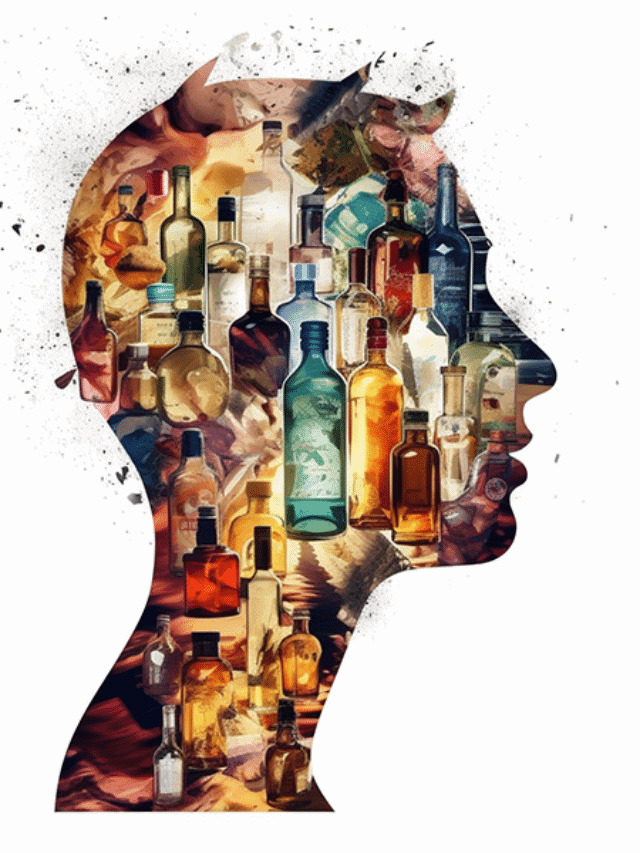Primarily, alcohol is indeed a depressant, casting its influence on the central nervous system. Yet, its role is not so black and white. In the initial stages of consumption or when sipped in small quantities, it dons the hat of a stimulant.
Early on, alcohol can rev up dopamine levels, set the heart racing, and sometimes fan the flames of anger or impulsivity. However, as the quantity of alcohol consumed increases, its role undergoes a dramatic transformation. Morphing from stimulant to depressant, alcohol begins to dial down the workings of the neurological system, blood pressure, and heart rate. A veritable Jekyll and Hyde, wouldn’t you agree?
This switch results in drowsiness, impaired coordination, and a foggy mental state. It’s this side of alcohol, its depressant persona, that earns it the classification of a neurocognitive depressant.
As responsible adults, it’s paramount that we’re informed about the substances we ingest, particularly something as ubiquitous as alcohol.
Alcohol: A Closer Look
To comprehend the impact of alcohol, we must first acknowledge what alcohol is at its core. Alcohol is a chemical compound, precisely a psychoactive substance, that affects our central nervous system. But how it influences us can be a bit more complex. So, is alcohol a stimulant or a depressant? The answer might surprise you.
How is Alcohol a Depressant?
First and foremost, alcohol is widely recognized as a depressant. This means that it slows down vital functions—resulting in slurred speech, unsteady movement, disturbed perceptions, and an inability to react quickly.
Depressants affect your central nervous system by slowing down the messages between your body and brain. Alcohol use lowers brain activity, which causes symptoms including tiredness, relaxation, and a loss of inhibition. Alcohol abuse can have long-lasting negative repercussions on one’s relationships, finances, and health. When alcohol affects your daily life, it may be time to get professional residential treatment for alcoholism.
How is Alcohol a Stimulant?
While alcohol is a depressant, it may initially seem like a stimulant for some people. It can induce specific effects like talkativeness, euphoria, and increased self-confidence. These ‘upper’ effects could lead to the misconception that alcohol is a stimulant.
However, it’s crucial to understand that these are temporary, short-lived effects. As blood alcohol levels increase, these stimulating effects tend to fade, and more depressive effects occur.
The Intricate Science of Alcohol
Peering beneath the surface, at its core, alcohol, or to be precise, ethanol, is a tiny, water-soluble molecule. A veritable Houdini, it slips effortlessly into the body’s cells once consumed. Swallowed, it navigates its way from the stomach and small intestine directly into the bloodstream, embarking on its journey to the brain.

But alcohol’s influence doesn’t stop there. Concurrently, it reins in another neurotransmitter, glutamate, known for its role in amplifying brain activity. When alcohol curbs glutamate, it further contributes to the overall depressant effect we often associate with drinking.
However, the story of alcohol isn’t all about slowing down. Paradoxically, at lower doses, it can also be a stimulant. By suppressing inhibitions and slowing the brain’s self-monitoring, judgment, and reasoning areas, alcohol can spark feelings of relaxation and euphoria.
The final act in the play of alcohol metabolism takes place in the liver. Here, alcohol is broken down at roughly the pace of one standard drink per hour. However, this rate is flexible. It dances to the tune of various factors, such as the drinker’s weight, age, sex, and even how much they’ve eaten recently. The unmetabolized alcohol lingers in the bloodstream, its effects echoing until the liver completes the final curtain call of metabolism.
The Dangers of Alcohol Misuse
Alcohol may be a stimulant or a depressant.1 However, it’s crucial to keep in mind that drinking too much alcohol might have a negative impact on your health. From liver disease to heart problems and beyond, the risk of alcohol misuse is high. Additionally, alcoholism can have severe social and psychological impacts.
Seeking treatment is crucial if you or a loved one is battling alcoholism. Various resources, such as residential treatment and detox centers in Utah, offer assistance in overcoming alcohol addiction.
Conclusion: Is Alcohol a Stimulant or Depressant?
In conclusion, while alcohol can initially produce stimulant effects, it is fundamentally a depressant. The stimulating effects are fleeting and quickly give way to the more harmful depressant effects, especially with higher consumption.
It’s never too late to get assistance if you or someone you love is battling alcoholism. Visit our sober living home page for more information on available resources.
At Liberty Addiction Recovery in Utah, we offer a range of resources for those in need, including support groups, therapeutic services, and comprehensive Utah alcohol rehab programs. If you or a loved one is struggling with addiction, we urge you to reach out to us.

Conclusion: Is Alcohol a Stimulant or Depressant?
In conclusion, while alcohol can initially produce stimulant effects, it is fundamentally a depressant. The stimulating effects are fleeting and quickly give way to the more harmful depressant effects, especially with higher consumption.
It’s never too late to get assistance if you or someone you love is battling alcoholism. Visit our sober living home page for more information on available resources.
At Liberty Addiction Recovery in Utah, we offer a range of resources for those in need, including support groups, therapeutic services, and comprehensive rehabilitation programs. If you or a loved one is struggling with addiction, we urge you to reach out to us.
Frequently Asked Questions
Alcohol is primarily considered a depressant but can have stimulating effects at lower doses or in the initial phases of consumption.
This is due to the stimulating effects of alcohol. It can lead to euphoria and increased sociability, especially in the initial stages of consumption.
Chronic alcohol misuse can lead to serious health issues such as liver disease, heart disease, stroke, problems with one’s mental health, and some types of cancer.
Responsible drinking means understanding your limits, consuming alcohol in moderation, and avoiding situations where excessive drinking or binge drinking may occur.
Various resources are available for help with alcohol misuse, including our healthcare professionals, therapists, and support groups at Liberty Addiction Recovery in Utah.
Additional information about alcohol use:
Short-term Risks
Short-term risks associated with alcohol include accidents, injuries, violence, risky behaviors, and alcohol poisoning, especially in cases of binge drinking.
Long-term Risks
Long-term misuse of alcohol can lead to serious health problems like liver disease, heart problems, stroke, mental health issues, and even an increased risk of certain types of cancer.
Responsible Drinking
Understanding Your Limits H3
Responsible drinking means understanding your limits and consuming alcohol in moderation. It’s crucial to know that the effects of alcohol can vary greatly among individuals.
Seeking Help for Alcohol Misuse H3
If you or someone you know is struggling with alcohol misuse, it’s important to seek professional help. Various support groups, therapies, and Alcohol rehabilitation programs are available at Liberty Addiction Recovery in Utah. Please, reach out to us if you or your loved one needs help.








4 Comments